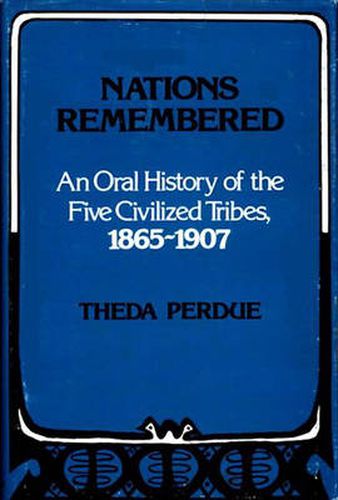Readings Newsletter
Become a Readings Member to make your shopping experience even easier.
Sign in or sign up for free!
You’re not far away from qualifying for FREE standard shipping within Australia
You’ve qualified for FREE standard shipping within Australia
The cart is loading…






The five largest southeastern Indian groups - the Cherokees, Chickasaws, Choctaws, Creeks, and Seminoles - were forced to emigrate west to the Indian territory (now Oklahoma) in the 1830s. Here, from WPA interviews, are those Indians’ own stories of the troubled years between the Civil War and Oklahoma statehood - a period of extraordinary turmoil. During this period, Oklahoma Indians functioned autonomously, holding their own elections, enforcing their own laws, and creating their own society from a mixture of old Indian customs and the new ways of the whites. The WPA informants describe the economic realities of the era: a few wealthy Indians, the rest scraping a living out of subsistence farming, hunting, and fishing. They talk about education and religion - Native American and Christian - as well as diversions of the time: horse races, fairs, ball games, cornstalk shooting, and traditional ceremonies such as the Green Corn Dance.
$9.00 standard shipping within Australia
FREE standard shipping within Australia for orders over $100.00
Express & International shipping calculated at checkout
The five largest southeastern Indian groups - the Cherokees, Chickasaws, Choctaws, Creeks, and Seminoles - were forced to emigrate west to the Indian territory (now Oklahoma) in the 1830s. Here, from WPA interviews, are those Indians’ own stories of the troubled years between the Civil War and Oklahoma statehood - a period of extraordinary turmoil. During this period, Oklahoma Indians functioned autonomously, holding their own elections, enforcing their own laws, and creating their own society from a mixture of old Indian customs and the new ways of the whites. The WPA informants describe the economic realities of the era: a few wealthy Indians, the rest scraping a living out of subsistence farming, hunting, and fishing. They talk about education and religion - Native American and Christian - as well as diversions of the time: horse races, fairs, ball games, cornstalk shooting, and traditional ceremonies such as the Green Corn Dance.